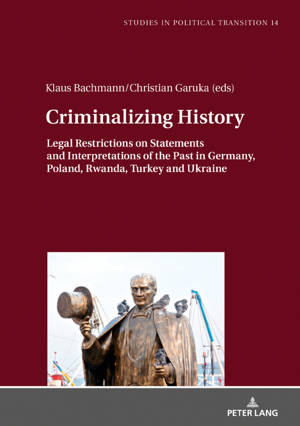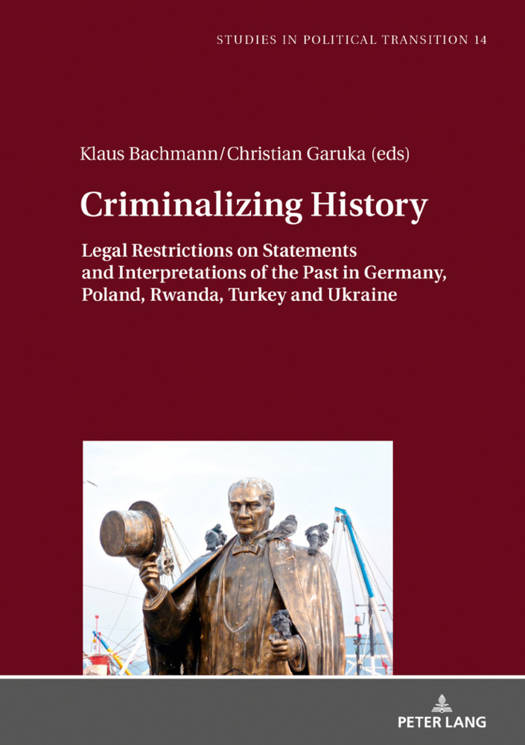
- Retrait gratuit dans votre magasin Club
- 7.000.000 titres dans notre catalogue
- Payer en toute sécurité
- Toujours un magasin près de chez vous
- Retrait gratuit dans votre magasin Club
- 7.000.0000 titres dans notre catalogue
- Payer en toute sécurité
- Toujours un magasin près de chez vous
Criminalizing History
Legal Restrictions on Statements and Interpretations of the Past in Germany, Poland, Rwanda, Turkey and Ukraine
63,95 €
+ 127 points
Description
More and more countries have passed legislation which punishes the use of controversial statements and interpretations of the past, often going much beyond the scope of legislation forbidding Holocaust denial.
Spécifications
Parties prenantes
- Editeur:
Contenu
- Nombre de pages :
- 182
- Langue:
- Anglais
- Collection :
- Tome:
- n° 14
Caractéristiques
- EAN:
- 9783631809570
- Date de parution :
- 02-04-20
- Format:
- Livre relié
- Format numérique:
- Ongenaaid / garenloos gebonden
- Dimensions :
- 148 mm x 210 mm
- Poids :
- 390 g

Les avis
Nous publions uniquement les avis qui respectent les conditions requises. Consultez nos conditions pour les avis.





